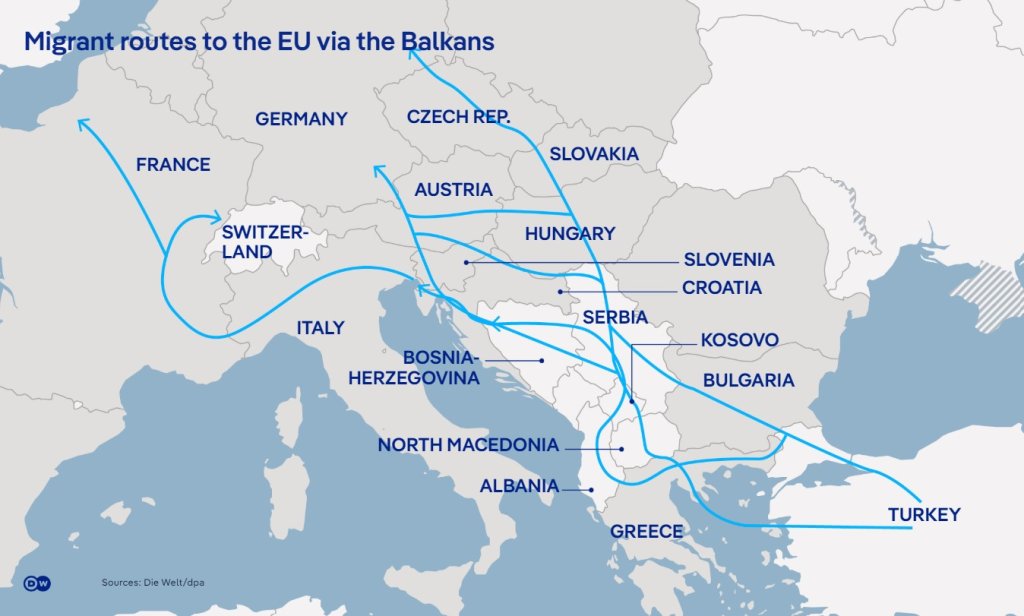Frontex, the European border agency, has sent its first 100 officers to Bosnia and Herzegovina to help protect the country's borders from illegal crossing attempts. Bosnia, which is located along the so-called Balkan route, is not a member of the European Union but plays a pivotal role in stopping irregular immigration into the bloc.
The first 100 officers of the EU's external border agency Frontex have arrived in Bosnia and Herzegovina to work alongside local border guards and improve the protection of the Balkan country's borders.
The organization said on October 31 said that underlying reason for the deployment was the prevention of irregular immigration and people smuggling while also tackling other forms of cross-border crime.

Read AlsoWestern Balkans: Europol teams arrest four accused of smuggling over 600 migrants
Frontex officials will patrol the border together with border guards from Bosnia and Herzegovina, and will also take part in surveillance operations at various border crossings and airports.
Frontex officials will not work independently in Bosnia but will only operate as part of joint teams alongside local officials, as was agreed by the two sides.
While sticking to international legal standards, Frontex officials will also have to abide by the laws of the Balkan country.
The agreement between Frontex and the Bosnian government on the deployment of Frontex officials was signed five months ago.
Read AlsoEU and Bosnia sign border deal to stop irregular migrants
Frontex increasingly betting on cooperation with non-EU members
The start of the mission was hailed by EU officials and local politicians as a major step in greater cooperation with the former Yugoslav republic, especially in migration matters.
Similar joint border management cooperations elsewhere in Europe and neighboring countries are estimated to have contributed to drastically reducing the number of undocumented migrants trying to reach the EU.
Frontex has shifted its attention to the Balkans region once again, as other migratory routes have become less frequented in recent months amid new drives to intercept irregular migrants.
Read AlsoBosnia: More migrants taking the Balkan route once again
